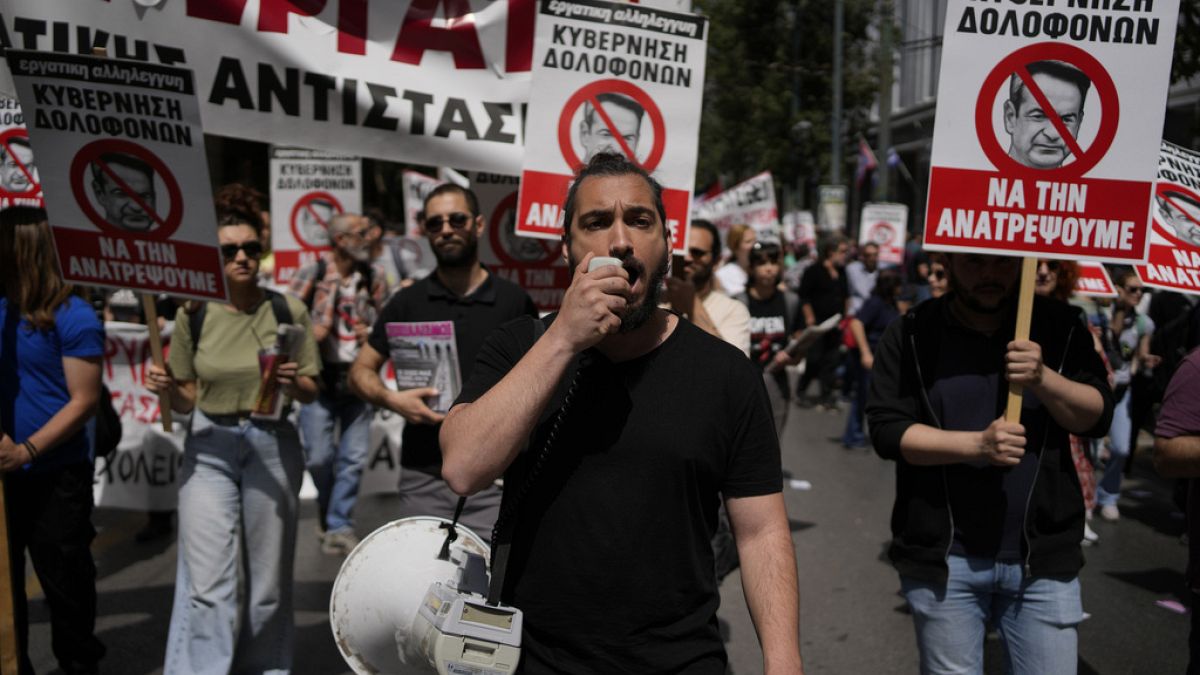Thousands of people have demonstrated in Athens and Thessaloniki over rising unemployment and the cost of living.
Strikes called by Greece’s largest labour union on Wednesday halted ferries, disrupted public transport services and left some state-run hospitals running on emergency staffing levels in Athens and elsewhere.
The General Confederation of Greek Labor, GSEE, led the strikes to demand the restoration of collective bargaining rights that were axed more than a decade ago during a severe financial crisis.
Unemployment hit a record high of more than 27% in 2013, and has been dropping in the years since. However, it crept up to 11% in February, its highest level since August 2023 according to the statistical office of the European Union, Eurostat.
In Athens, protester Nancy Rizou said even though new jobs have been created, the wages are too low. She said it is difficult to find better paying jobs.
''I work six hours a day, six days a week. I'm considered a part time employee and I am paid the minimum wage. That is 605 euro net per month.''
Another protester, Stelios Daskas, who has worked a security officer for 20 years, said he had to take legal action against his employer over non-payment of overtime and weekend penalty rates.
''Now I earn €850 per month, after a long legal battle in which I was not fully vindicated,'' he said.
''To make ends meet we are either forced to get a second job or we have to 'tighten the belt', but how much can you do that? What else is there to cut? You deprive things from your children or yourself.”
The comeback
Greece has returned to robust economic growth and an investment-grade sovereign bond rating following a series of international bailouts and a severe recession during a 2010-18 fiscal crisis.
But unions argue that many labour rights removed as a temporary measure during those years have not been restored. Since the crisis, Greece’s minimum wage is set by the government, and not through negotiations between unions and employers as before.
Dimitris Tachmatzidis, the GSEE's deputy president, said collective bargaining agreements gave workers and employees the right to ask for better wages and working conditions.
''In the European Union of 27, 86% of the working population is covered by a collective bargaining agreement. In Greece the number is just 24% of private sector workers,'' he said.
